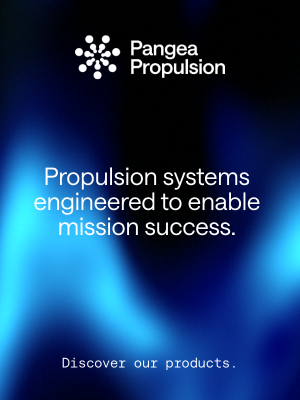Call for Papers
CALL FOR PAPERS IS CLOSED
Notification to authors will be send on January 26, 2026
Take a look at the full annuncement here
10th EDITION OF THE 3AF INTERNATIONAL CONFERENCE ON SPACE PROPULSION
18-21 MAY 2026 - BARI, ITALY
"Challenging the scale economics and industrialisation for future propulsion in a competitive environment"
Original papers are solicited on the following critical areas of research and engineering.
Each paper will be selected through its abstract emphasizing the topic and interest of the presentation. All abstract submissions will be assessed by members of the Technical Committee concerned.
Then, the selected contributors will be requested to submit online the full paper.
All accepted and presented communications will be published in the online proceedings.
PhD’s papers are particularly appreciated.
We remind all submitters that papers and presentations should not resemble a company, service or production sales pitch. Space Propulsion is a scientific Conference which promotes scientific research.
HOW TO SUBMIT AN ABSTRACT?
- Create an online account here: https://www.3af-spacepropulsion.com/my-account-abstract
- Click on "Submit an abstract"
- Follow the several steps indicated to complete your abstract
- You can keep your abstract as a draft if you want to make some modifications or save and officially submit your abstract for the Conference
- Once your abstract officially submitted, it will be reviewed by the Technical Committees Members. You will receive their final decision on January 12, 2026.
- Please be sure to contact us anytime if assistance is needed: spacepropulsion@3af.fr or +33(0)1.56.64.12.37
DETAILED LIST OF TOPICS TO BE ADDRESSED FOR SP2026
SP2026 Technical Committees are soliciting abstracts on the following topics:
(some sub-topics include a non-exhaustive list of more detailed themes as guidance for abstract submission)
List of topics to be adressed for the SP2026 Conference
ADVICE TO AUTHORS
The main purpose of the abstract is to give the Technical Committees information to assist them in selecting the papers to be presented at the Conference.
- The selected papers will be presented in a 20 minutes speech at the Conference (included 5 minutes for Q&A). Speakers are required to be present on site. No remote virtual presentation will be authorized
- An abstract will be selected based on the importance and originality of the subject addressed, on its relevance to the conference theme, on the clarity of its expression. We remind all submitters that papers and presentations should not resemble a company, service or production sales pitch. Space Propulsion is a scientific Conference which promotes scientific research.
- The abstract should be a “stand alone” summary that can be used in the compilation of abstracts.
- The abstract should be in English and no longer than 500 words.
- The abstract should summarize the main objectives of the paper to be presented and outline its conclusions.
- Work that has been presented elsewhere, and not updated, will be considered inappropriate.
- Notification by the Technical Committees will be accompanied by detailed instructions allowing authors to prepare and make the online submission of their full paper.
- Failure to comply with the deadlines and instructions required will entail not having the manuscript selected and included in the conference proceedings.
- You have to be registered through your personal account in order to manage all your personal data and abstracts submission.
- You can choose one of your co-authors as presenter instead of you, but she/he will be invited to create a personal account too.
- Take a look at the full Call for Papers and

 my account
my account

